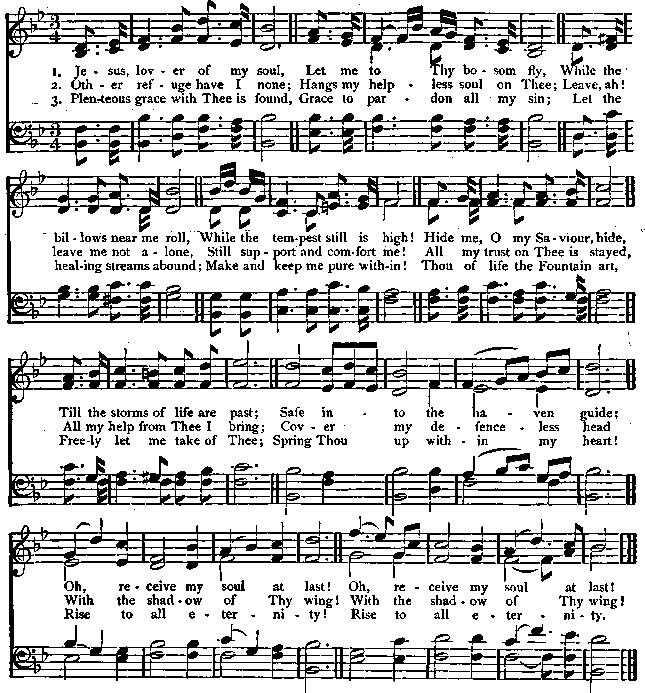Franklin Square Song Collection - online songbook
200 favorite songs and Hymns for Schools, Homes Lyrics & Sheet Music
| Share page | Visit Us On FB |
|
6o FRANKLIN-SQUARE SONG COLLECTION. |
|||
|
Hymn TUnes.—The tunes which burden our modern books, in hundreds and thousands, utterly devoid of character, without meaning or substance, may be sung a hundred times, and not a person in the congregation will remember them. There is nothing to remember. They are the very emptiness of fluent noise. But let a true tune be sung, and every person of sensibility, every person of feeling, every child even, is aroused and touched. The melody clings to them. On the way home snatches of it will be heard on this side and on that; and when |
the next Sabbath, the same song is heard, one and another of the people fall in, and the volume grows with each verse, until at length the song, breaking forth as a many-rilled stream from the hills, grows deeper and flows on, broad as a mighty river! Such tunes are never forgotten. They cling to us through our whole life. We carry them with us upon our journey. We sing them in the forest. The workman follows the plow with sacred songs. Children catch them, and singing only for the joy it gives them now, are yet laying up for all their life food of the |
||
|
JESUS, LOVER OF MY SOUL. |
Franz. Abt. Chas. Wesley, 1740. |
||
 |
|||
|
|
|||
|
sweetest joy. Such tunes give new harmony and sweetness even to the hymns which float upon their current. And when some celestial hymn of Wesley or of the scarcely less than inspired Watts, is wafted upon such music, the soul is lifted up above all its ailments and rises into the very presence of God, with joys no longer unspeakable, though full of glory. In selecting music, we should not allow any fastidiousness of taste to set aside the lessons of experience. A tune which has always interested a congregation, |
which inspires the young, and lends to enthusiasm a fit expression, ought not to be set aside because it does not follow the reigning fashion or conform to the whims of technical science. There is such a thing as Pharisaism in music. Tunes may be faulty in structure, and yet convey a full-hearted current that will sweep out of the way the worthless, heartless trash whose only merit is a literal correctness. When a tune has been found to do good work, it should be used for what it does and can do.—H. W. Beecher. |
||